NKU students engaged in real-world experiences over spring break traveling and creating lasting memories and friends. During spring break, students made documentaries about coffee, hiked up volcanos, competed in golf tournaments, biked around Amsterdam, spoke at nationally-known conferences and enjoyed beach volleyball games and Nepali feasts. Below are five highlighted spring break trips that students took which show a glimpse of NKU students’ adventures.
NKU electronic media and broadcasting students ventured into Guatemala over spring break with EMB 495: Storytelling Through Media in Guatemala led by Sara Drabik, professor and program head of media and journalism. This study abroad trip focused on Los Andes Nature Reserve where students worked to document through film “environmental preservation and community development,” surrounding coffee according to the study abroad website.
The nine-day trip started in Guatemala City progressing to a town called Antigua, where the group spent the bulk of their trip at Los Andes Nature Reserve, which grows and exports coffee to Cincinnati’s Coffee Emporium. This reserve grows “coffee, tea, and macadamia nuts. They have a dairy farm, a school for the children, a medical clinic and are completely off the grid because it’s all hydroelectric power,” Drabik said. “It’s a very unique, very inspiring place to visit.”
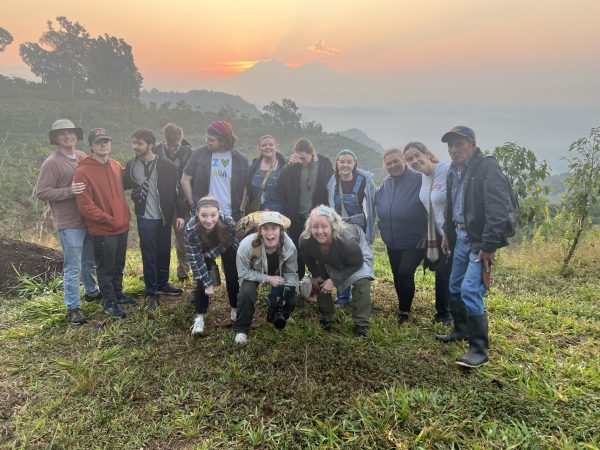
“The students got off the plane and immediately got their gear out, set up and started working. They were in a foreign country, in a different culture, they didn’t speak the language but they made it work and I was so proud,” Drabik said. After landing, the group headed to Anacafe— the largest governmental organization that assists coffee growers, according to Drabik—to interview and film coffee leaders and scientists.
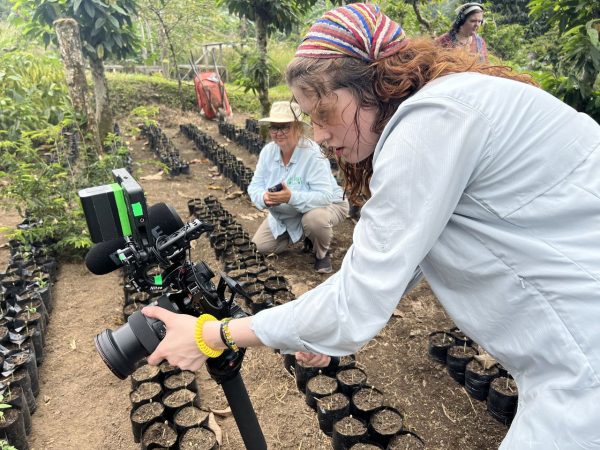
Abby Murphy, an EMB major, explained that the group’s documentary focused on the main theme of innovations and coffee within the ‘coffee belt.’ “Coffee demands really specific growing conditions,” Murphy said. The documentary will be focusing on “things like climate change, labor shortage and then smaller problems that stem from those,” and what methods farmers are using to sustain proactivity, even though “it’s getting harder and harder to grow coffee ethically and sustainably and source it from places like these small farms.”
“I’m hoping that the work that we did as a class on this trip is impactful somehow because the work that was done at Los Andes is extremely meaningful and deserves to be seen by everyone,” Murphy said.
Murphy talked about the challenges of the trip pushing her in aspects of documentary filmmaking, field production, working on her feet for long periods of time with gear and navigating the language barrier with translators while interviewing sources.
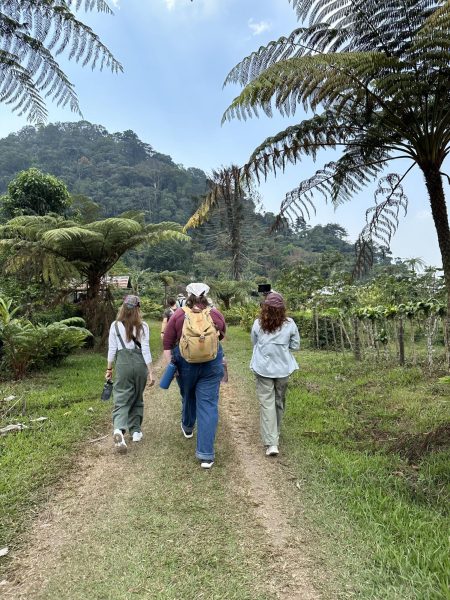
Murphy also talked about how the family at Los Andes opened up their home to the group. “They cooked for us and cleaned up after us and made sure we were taken care of,” she said. The “owner of the farm, Olga Hazard, was a wonderful, extremely kind, caring, inspirational woman,” Murphy said. “I’ve never experienced such extreme kindness and hospitality in my whole life.”
The trip was “meaningful beyond words and it was completely transformative especially because of the work that we are able to do and I’m so so thankful to have had that opportunity,” Murphy said.
Murphy visualized the trip by talking about a mural on the wall at Los Andes, a globe with two hearts painted on it, one on Guatemala and one over Cincinnati because of the connection to both the Coffee Emporium and NKU. Above the globe in Spanish is written, “Love is Universal.”
“People around the world are people, and they all have kind of the same hopes, the same fears, the same curiosity, and if you open yourself up to that, I think that’s what study abroad does. It shows you that the world is a beautiful, wonderful place,” Drabik said.
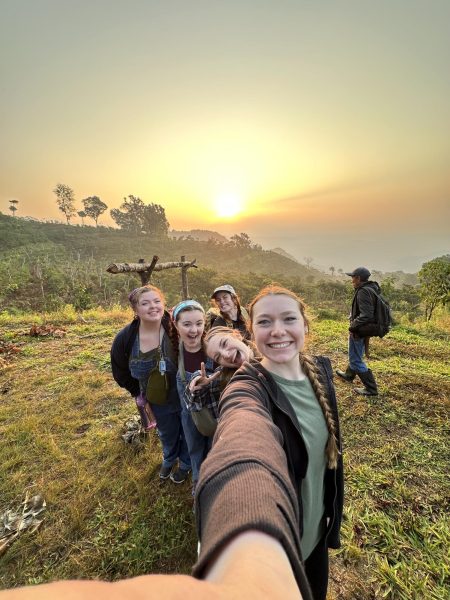
The group was able to connect and interact with the Guatemalan people and spend time with the children at the nature preserve, crossing language barriers. When the group visited the city of Antigua, they went to a cooperative farm where they learned about Antigua’s agriculture. They also went to a chocolate museum where they made chocolate from cocoa pods and a “Lord of the Rings” and “The Hobbit” themed park.
Murphy recalled a special moment of the trip being a trek up to the top of a mountain that stood next to a volcano. “We got to see basically an eruption, like smoke coming out of the volcano during sunrise. It was so beautiful and just breathtaking and as a photographer and videographer, it made my heart happy that I have my camera with me,” Murphy recalled.
______________________________________________________________________________
Creating memories and lasting friendships
NKU’s Baptist Campus Ministry (BCM) led its annual trip down to Oak Island, North Carolina with many students from the Norse of Nepal group. The group of more than 60 attendees played games, spent time on the beach, enjoyed sand volleyball, ate delicious meals and engaged in daily Bible studies and worship time. They lodged at Fort Caswell Coastal Retreat & Conference Center for six nights.
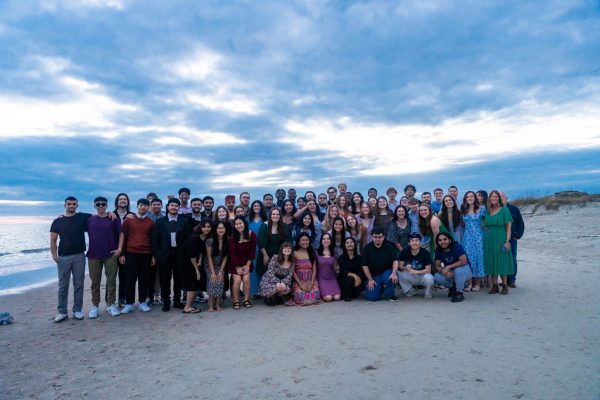
The group of students was divided up into eight different teams during the trip and competed in daily games to win points, which emphasized the importance of teamwork within life. They spent time on the beach and engaged in service projects such as cleaning up the beach or helping around the camp through power washing, cleaning the swimming pool and painting.
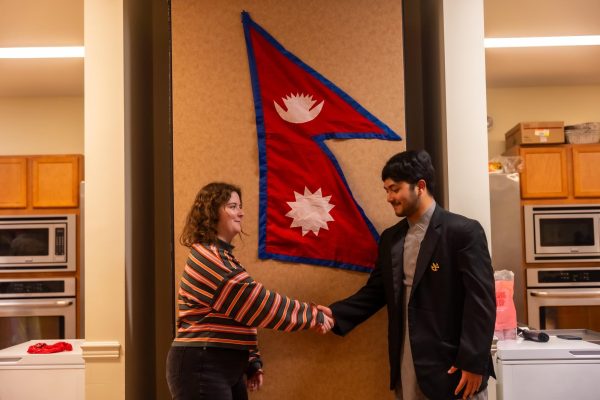
“I must say that the BCM community [is] the kindest people on campus,” Binayak Shrestha, president of Norse of Nepal said. “We did a lot of fun activities at the beach, we also learned about Christianity and we had some other time to represent Nepal, Nepali culture and Nepali food as well for a day.”
“I think my favorite moment was just being able to meet a lot of the international students because each and every one of them are just absolutely lovely people,” recalled BCM President Abby Hepp.
Shrestha highlighted his top two moments of the trip saying: “The first thing was to cook Nepali [food] for all the 65 people, and the second thing is learning about Christianity because I love to learn about many religions and also all of us Nepalese were non-Christians, so we were very happy to learn about Christianity. But the good thing is nobody ever forced us to do anything for the religion.”
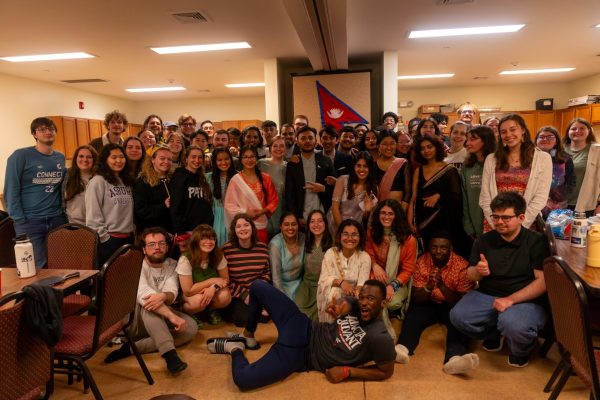
Hepp talked about how “spending a whole week with people who have different beliefs and different cultures as you, it’s just really, really cool because they came here and they are learning our culture. I think it’s only fair for us to reciprocate that and be able to learn about their culture.”
One highlight for Hepp was a karaoke night where the evening started with the group “singing popular American songs, and then they were singing popular Nepali songs and then at one point, it was no longer karaoke, it was just like a dance party,” where they were singing Nepali songs and learning traditional dances.
“Nepal is a landlocked country so we don’t have any seas or oceans, so for us getting to the beach and having a volleyball tournament was one of the best experiences,” Shrestha said.
The trip has “fostered tons of friendships because, even though the trip is over, we still have a group chat going,” Hepp said. “We want to continue these friendships. This wasn’t just a spring break thing and then we never see our friends again. We want to continue this.”
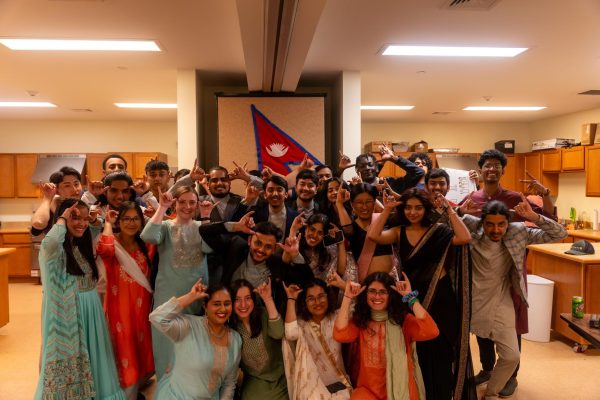
“I think not only the place, it’s about the bonds and connections that we create with the campus community,” Shrestha said. “I will cherish these friendships throughout my lifetime because they really are good people and they told us to have friendships with intention, not just friends, but also to be a part of their joy or sorrow.”
______________________________________________________________________________
Teaching and living history
A group of six NKU students, led by associate history professor Rebecca Bailey, spent their spring break teaching and living history throughout the Midwest. The group’s first stop was the Mine Wars Museum in Matewan, West Virginia, where students “assisted the museum with whatever they needed help with right there on site, moving furniture around, reorganizing” or completing other projects to support the presentation of history, said history masters student Mattie Kuechler.
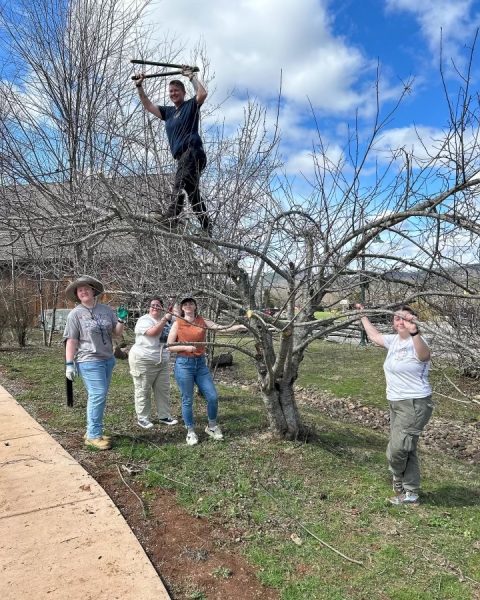
The students were in the presence of history, Kuechler said. They could touch the bullets in the walls where the conflict took place during the Matewan mine wars. “It’s kind of like being a time machine,” Kuechler said.
Anthropology major Grace Pfsantiel said the group focused on real-world learning experiences on the trip.
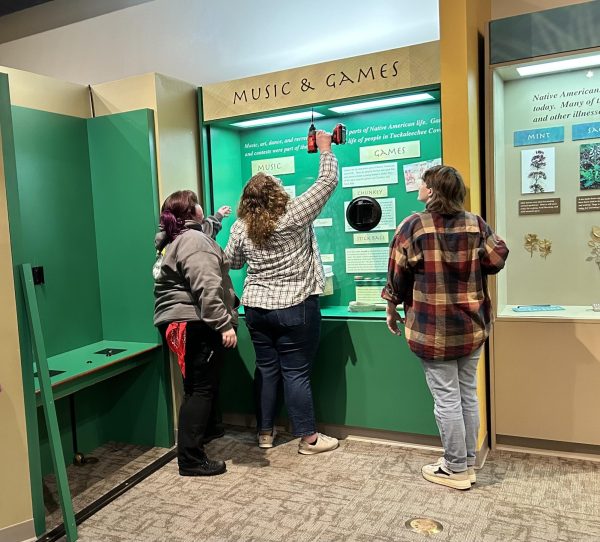
The group then traveled to Townsend, Tennessee to partner with the Great Smoky Mountain Heritage Center in their goal of sharing Appalachian history. The group trimmed apple trees, fixed broken historical displays and visited a huge bookstore.
The group’s last stop was North Carolina, where the students completed their trip’s main objective, speaking at a National Appalachian Study Association Conference to understand how students can collaborate with partners just about anywhere digitally, Kuechler explained. Three presentations were made by students in the group focusing on Incorporating Prior Knowledge into Class Experience, Story Sleuths and History Detectives and Interdisciplinary Partnerships.
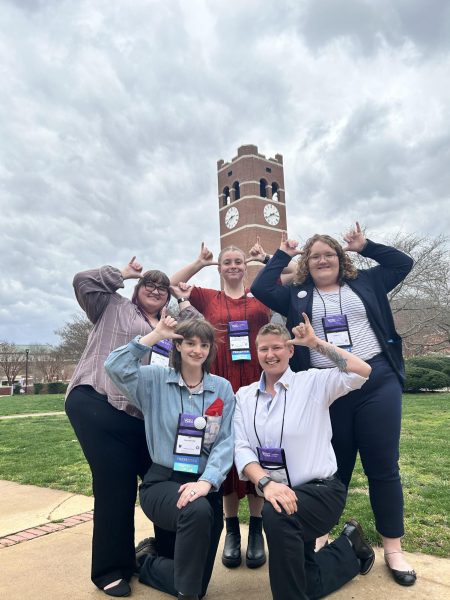
“I didn’t really understand the impact a week-long conference was going to have on me,” Pfsantiel said. This trip has reignited Pfsantiel’s passion to be an “educator and steward everywhere I go because you can never stop learning.”
Kuechler said that the experiences were “something that you can hold and it’s a lifelong experience” that you can not only put on your resume but reflect back on.
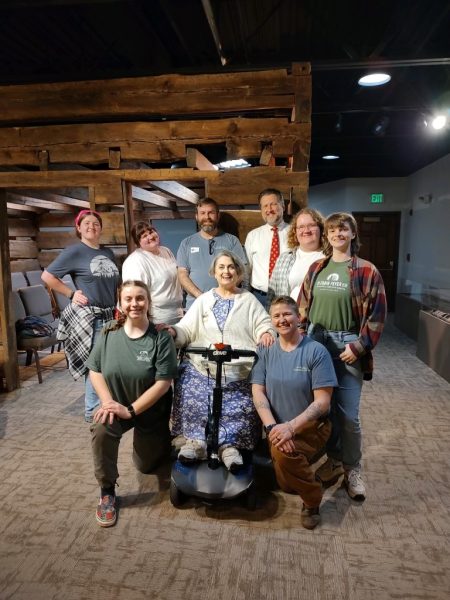
Grace synopsized her feelings of the trip by reading a portion of the speech she presented at the conference. “Engaging in active learning can enable us to make a tangible impact on the world around us, this is the value in allowing student studies to contribute meaningfully before concluding our academic pursuits.”
______________________________________________________________________________
Golfing in the tropics
Saturday, March 3 was the travel day. After a long flight, NKU’s women’s golf team arrived in Puerto Rico with six athletes and their coach to golf the tropics. “Our trip was very purely golf,” Abby Cook, a masters student studying Business Informatics, explained. “Every full day that we had there we were golfing, but man, it was really fun,” she said. The team competed in the Puerto Rico Classic in Palmas del Mar. This is hosted by Ball State University in Indiana and includes California Baptist, Florida Gulf Coast and Seattle University among many other teams.
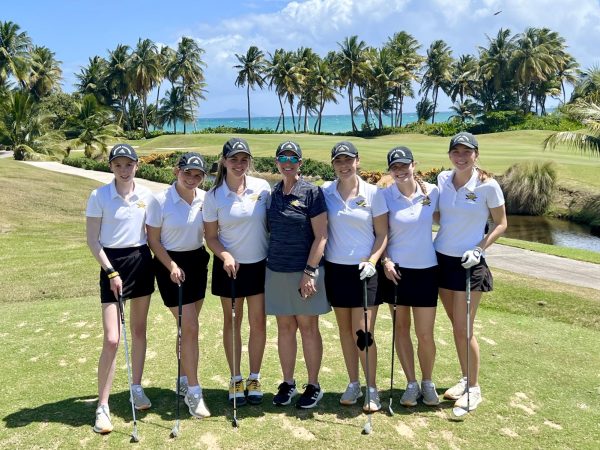
Accounting student Ella Hardy talked about how everyone there was nice, and the women were able to play with some really good teams, even in higher leagues than their own. “They were very competitive and it was nice seeing how they viewed the game,” she said.
Hardy talked about how the group got “to experience a lot of different food which was pretty exciting and it was really, really good.” Cook and Hardy both talked about trying a local Puerto Rican dish called Mofongo which they described as a mix of plantains and rice served as a side dish which can contain vegetables or meat.
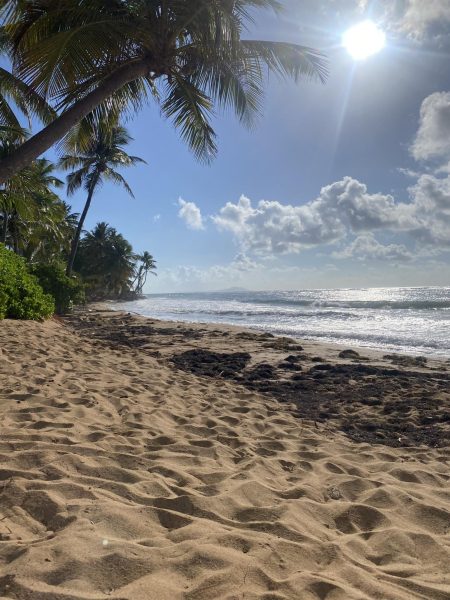
The group enjoyed riding in the course’s golf carts and watching the many iguanas on the course. “We were seeing iguanas instead of squirrels all over,” Cook said. The group spent their valuable free time on the beach, swimming in the pool and enjoying a bonfire one night with s’mores.
Hardy and Cook’s favorite moment happened when the group was going from the course’s number 11 green to number 12 tee. They looked up to see “this beautiful view and we all just squealed and were like ‘oh my gosh!’ You look out and it was just gorgeous and the ocean was the backdrop,” Cook said. From the golf course you could see the “ocean all behind and the beach right there!” It was the “most beautiful hole I’ve ever seen from a tee,” Hardy said.
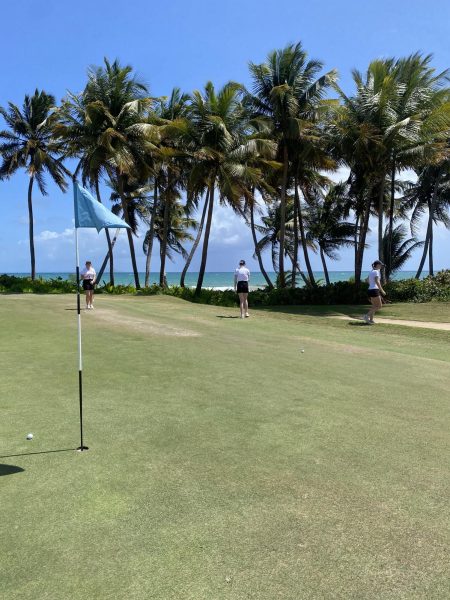
Hardy talked about how mentally challenging the sport of golf can be, but if you “just pause for a second and you saw how beautiful everything was. And you’re like, wow, I’m just so grateful to be here.”
“I am going to cherish the memories and bonds that I’ve made with my teammates,” from this trip, Cook said.
“It really made me grateful for golf,” Hardy added.
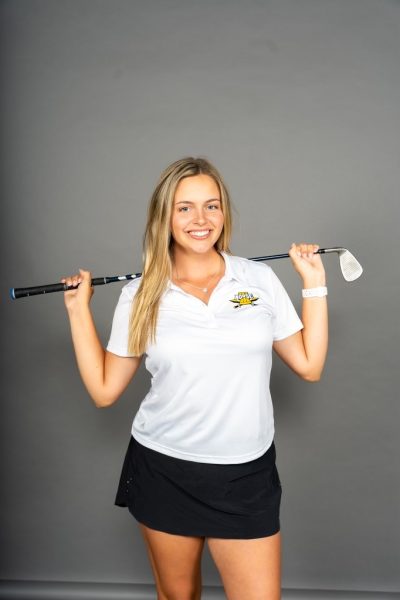
______________________________________________________________________________
Business in the Netherlands
Mark Thackeray’s IBU 395: Global Supply Chain Management in the Netherlands focuses on international business. After seven weeks of regular class, 14 students took an 11-day trip to the Netherlands to study three industries and their supply chains, comparing and contrasting the management and logistical elements.
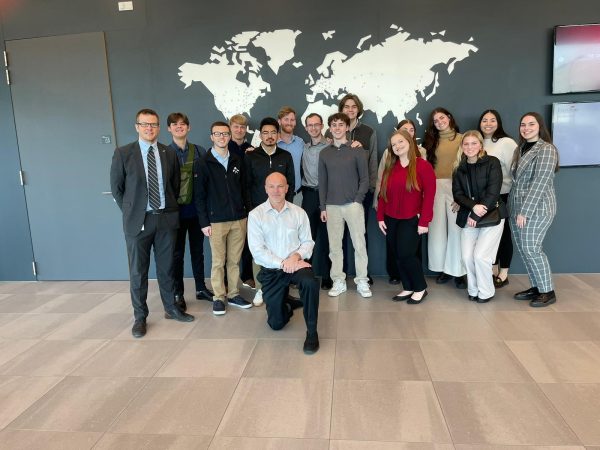
According to Thackaray, the group traveled to four cities within the Netherlands: Amsterdam, an old Dutch city, The Hague, the seat of government, Breda, a smaller town and Rotterdam, the second largest modern city in the Netherlands.
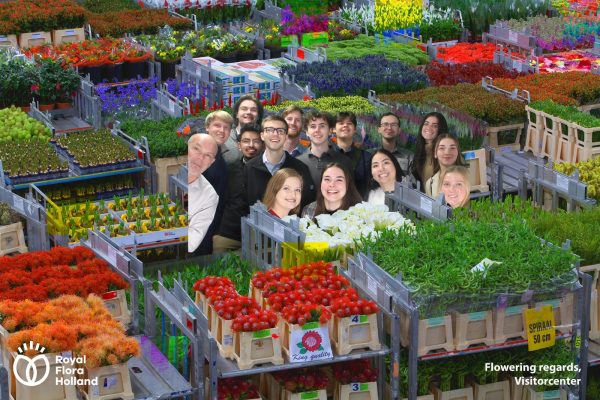
One of the trips’ top highlight locations was the “Aalsmeer Flower Auction, which is the largest flower market in the world. There’s an estimate that says 60-70% of the flowers we would buy in a Kroger in the United States came through that flower market,” Thackeray said. There are around 12 million flowers that are processed through the auction and shipped out in a matter of a few hours, he said.
The group visited a customs brokerage company, Expeditors, a technology-based company, Siemens and Siemens, and a confectionery company, Perfetti van Mel, which makes Mentos and Airheads. They had an unexpected visit to the beach and spent time at Rotterdam MainPort Institute, a sister school, where students took part in a Master Shipper simulation logistical optimization activity together with the Dutch students.
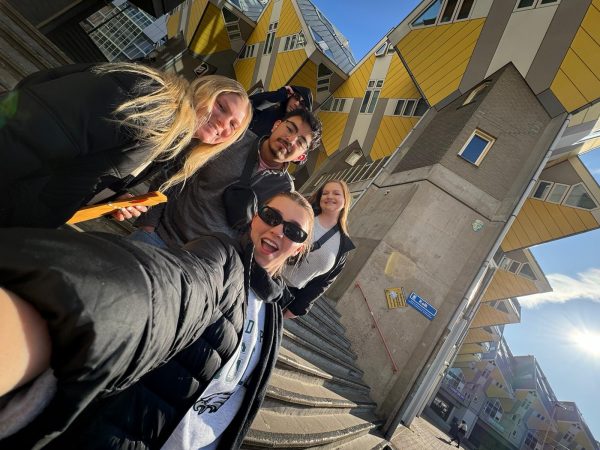
Entering the last days of their journey, the group spent time on the port of Rotterdam which is “the largest port in Europe. It’s 53 miles long,” Thackeray explained. “We went to the very end where the deep sea water is and got to see three of the five largest container ships in the world being loaded or unloaded.” The last activity the group took part in was The Amazing Race Rotterdam version where students explored the city through a series of envelopes and clues.
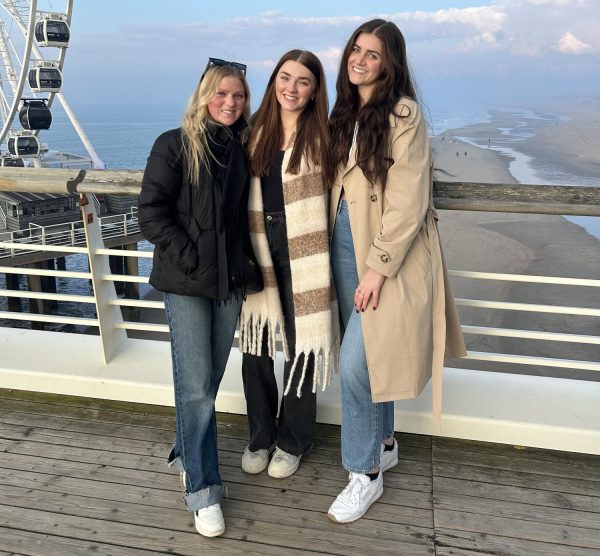
“I feel like the biggest culture shock I had was like everyone rides bikes everywhere,” or uses public transportation, which they also did, said Reese Watson, finance and entrepreneurship double major. “The Dutch culture really embraces the use of bicycles,” Thackeray said. It was cool to see “how people use dedicated bike lanes and traffic signals.”
This trip provided a “unique opportunity to learn, explore, have some fun and make a memory,” Thackeray said.
“I think my biggest takeaway is you can take your experiences from here and they can be applied everywhere,” Watson said.







